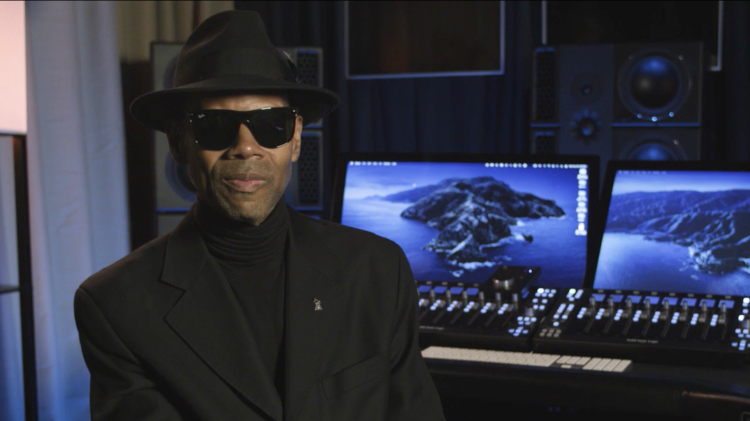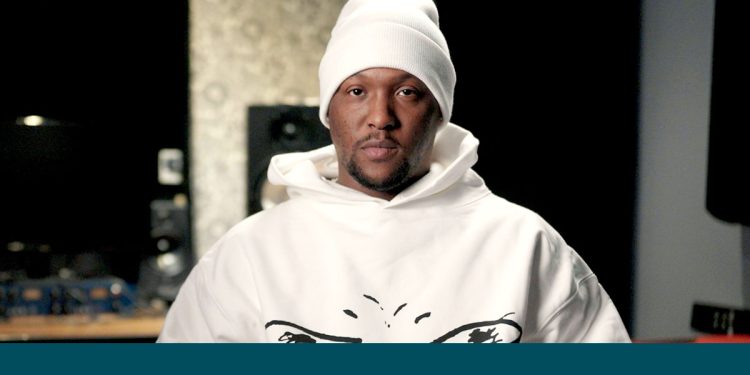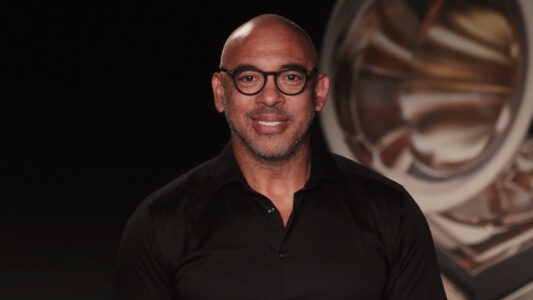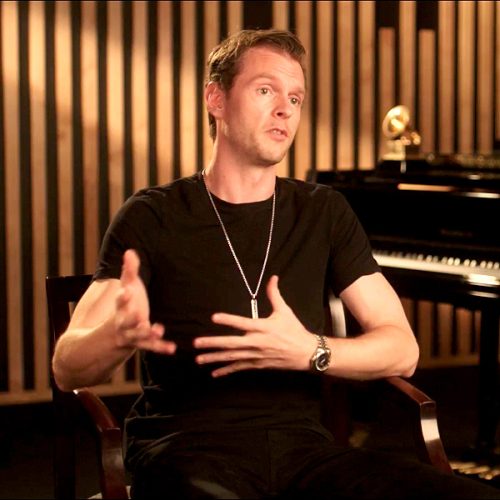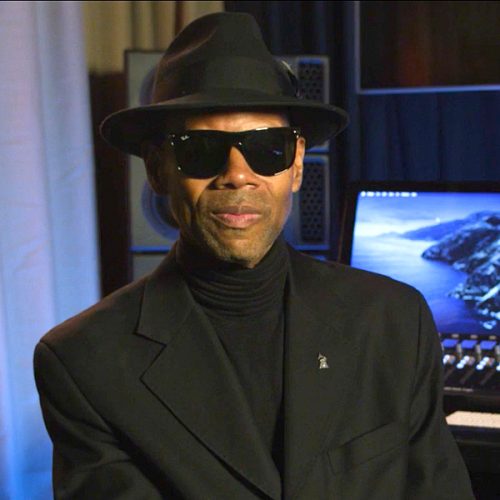Overview
Becoming a Tour Manager: Responsibilities, Skills, and Salary
A.K.A.

Are you a recording artist looking to hit the road and embark on a successful tour? Or perhaps you’re simply curious about the role of a tour manager and what they bring to the table. Look no further, as this article is here to shed light on the world of tour managers and their invaluable contributions to the music industry. (Photo by Aleksandr Popov on Unsplash.)
Discover GRAMMY GO courses exclusively on Coursera
Tour managers are the unsung heroes behind the scenes, ensuring that every aspect of a tour runs smoothly. From planning and logistics to financial management and artist well-being, they wear multiple hats to ensure a seamless experience for both the artist and the audience. But what exactly does a tour manager do? And how can you find the right one for your needs? Join us as we delve into the world of tour managers and uncover the key qualities to look for when hiring one.
Whether you’re an aspiring artist or a curious music enthusiast, understanding the role of a tour manager is crucial in navigating the complex world of touring. So, let’s discover the essential tasks and responsibilities of tour managers, as well as where to find them and how much they typically cost. Get ready to unlock the secrets behind successful tours and the key players who make it all happen.
What Is A Tour Manager?
A tour manager is a crucial member of an artist’s team, especially when it comes to touring. Their role is to ensure that everything runs smoothly before, during, and after the show. From planning and logistics to financial management and artist well-being, tour managers handle a wide range of responsibilities to make the tour a success.
Tour managers serve as the lynchpin of the entire touring cycle. They travel alongside the artist and the crew, overseeing all aspects of the tour. They are responsible for coordinating venues, transportation, accommodations, and other logistical details. This ensures that the artist and their team can focus on their performances without distractions or disruptions.
In addition to the logistical aspects, tour managers also serve as a personal manager to the artist. They play a vital role in ensuring the artist’s overall well-being throughout the tour. This includes managing schedules, handling day-to-day tasks, and addressing any concerns or issues that may arise. A tour manager’s ultimate goal is to ensure that both the tour and the artist are successful and thriving.
It’s worth noting that tour managers often double as personal managers. This means that they not only oversee the logistics of the tour but also manage all aspects of an artist’s life. They are responsible for not only ensuring a smooth-running tour but also ensuring the artist’s happiness and well-being.
A tour manager is a highly skilled professional who plays a crucial role in the success of an artist’s tour. They handle everything from logistics to financial management and artist well-being. With their expertise and dedication, tour managers ensure that the tour runs smoothly, allowing the artist to focus on delivering outstanding performances.
What does a Tour Manager do?
Roles & Responsibilities
A tour manager plays a crucial role in the smooth running of a tour. They are responsible for managing all aspects of the tour, both before and during the shows. Here are some key roles and responsibilities of a tour manager:
- Logistics Management: A tour manager is in charge of coordinating all logistics related to the tour. This includes arranging travel accommodations, booking transportation, and ensuring that all equipment and merchandise needed for the shows are organized and ready.
- Financial Management: Tour managers work closely with artist management and business management to create a tour budget. This budget serves as a roadmap for all financial decisions during the tour, from choosing hotels to hiring crew members. They also handle various financial transactions throughout the tour, such as paying vendors and ensuring that everyone is paid correctly and on time.
- Artist Well-being: Alongside managing the tour, tour managers also serve as personal managers, taking care of all aspects of an artist’s life on the road. They ensure that the artist is comfortable, happy, and well taken care of. This can involve arranging for personal needs, such as dietary requirements or specific accommodations, and addressing any issues that may arise during the tour.
- Team Coordination: Tour managers are responsible for managing the entire crew involved in the tour, including band members, roadies, and technical staff. They ensure that everyone is working together cohesively and that tasks are being completed efficiently. This involves overseeing rehearsals, sound checks, and coordinating schedules.
- Problem Solving: In the fast-paced environment of a tour, unexpected challenges can arise. Tour managers are skilled problem solvers who handle any issues that may come up, whether it’s a technical glitch during a show or last-minute changes to the itinerary. They remain calm under pressure and find solutions quickly to keep the tour running smoothly.
- Tour Documentation: Tour managers also handle various administrative tasks, such as managing contracts and legal documents related to the tour. They keep detailed records of expenses, receipts, and other important documents to ensure a smooth reconciliation process after the tour.
Tour managers are the lynchpin of the entire touring cycle. They handle a wide range of responsibilities, from logistics management to financial and artist well-being. Their expertise and dedication ensure that the tour runs smoothly and that the artist can focus on delivering outstanding performances.
How To Become A Tour Manager
Qualifications & Skills
To become a tour manager, there are certain qualifications and skills that aspiring individuals should possess. While a bachelor’s degree is not always required, it can be helpful in gaining the necessary knowledge and skills for the role. Some relevant fields of study include music business, music industry studies, business management, marketing, or related areas.
In addition to formal education, practical experience in the music industry is highly valuable. Many tour managers start their career by working in various roles within the industry, such as live sound, venue management, or working closely with artists. This hands-on experience allows aspiring tour managers to learn the ins and outs of the industry and develop essential skills.
Some key skills that tour managers should possess include:
- Strong organizational and planning abilities are crucial for managing all aspects of a tour, including scheduling, logistics, and travel arrangements.
- Excellent communication and interpersonal skills are necessary for effectively coordinating with artists, crew members, venues, and other stakeholders.
- Problem-solving skills are essential for addressing any issues or challenges that may arise during the tour and finding effective solutions.
- Financial management skills are important for handling budgets, negotiating deals, and ensuring financial success of the tour.
- Attention to detail is vital for ensuring all necessary arrangements and requirements are met, such as visas, travel documentation, and equipment.
Schools & Degrees
While there is no specific degree required to become a tour manager, obtaining a degree in a music-related field can be beneficial. Many universities and music schools offer programs in music business, music industry studies, or related disciplines. These programs provide a solid foundation in the business and management aspects of the music industry.
Some recommended courses to take during the degree program include psychology, business law, logistics, accounting, or tourism and travel management. These courses can provide additional knowledge and skills that are applicable to the role of a tour manager.
In addition to formal education, seeking internships or entry-level positions with music promoters, record labels, or concert venues can provide valuable hands-on experience and networking opportunities. Learning directly from experienced tour managers can offer insights into the daily responsibilities and challenges of the role.
If you’re a tour manager aiming to enhance your market value by building your personal brand, consider enrolling in GRAMMY GO‘s ‘Building Your Audience for Music Professionals‘ specialization on Coursera. This course provides essential insights into branding not only for creators but also for creative teams. In today’s industry, every professional stands to benefit from cultivating a strong personal brand. This specialization will equip you with the skills necessary to effectively promote and distinguish yourself in the competitive music business landscape.
Tour Manager Salary
One of the key factors that people consider when pursuing a career is the potential salary. For those interested in becoming tour managers in the music industry, it is important to understand the earning potential in this role.
According to Salary.com, In Los Angeles, CA, the average salary for a Tour Manager is $124,177. The salary range usually varies between $103,589 and $143,528 based on factors such as education, certifications, additional skills, and years of experience in the field.
$124.177K
AVG

It is worth noting that these figures represent an average, and there are opportunities for higher salaries, especially for those who work with high-profile artists. Additionally, the length and frequency of tours can also impact the overall income of a tour manager.
While the salary range is important to consider, it is essential to remember that being a tour manager offers other benefits that go beyond monetary compensation. Here are some additional advantages that come with being a tour manager:
Challenges & Rewards
Advantages & Disadvantages Of Being A Tour Manager
While the salary range is important to consider, being a tour manager in the music industry comes with its own unique set of challenges and rewards. Let’s take a closer look at the advantages and disadvantages of pursuing a career as a tour manager.
Advantages:
- Travel Opportunities: One of the most exciting aspects of being a tour manager is the chance to travel to different cities and countries. Tour managers get to explore new places, experience different cultures, and create unforgettable memories along the way.
- Networking Opportunities: Tour managers have the opportunity to connect with various industry professionals, including artists, promoters, agents, and venue managers. These connections can open doors to future opportunities and collaborations.
- Job Security: The demand for talented and experienced tour managers is high in the music industry. With the continuous growth of live music events and tours, tour managers can enjoy a stable and secure career.
- Variety of Responsibilities: As a tour manager, no two days are the same. From coordinating logistics to managing finances and ensuring artist well-being, tour managers have a wide range of responsibilities that keep them engaged and challenged.
Disadvantages:
- Long Hours and Workloads: Tour managers often work long and irregular hours. They are responsible for overseeing every aspect of the tour, from planning and logistics to problem-solving and troubleshooting. This can result in extended workdays and periods of high stress.
- Constant Travel: While travel can be exciting, it can also be physically and mentally demanding for tour managers. Constantly being on the road and away from home can lead to fatigue and a lack of personal time.
- High-pressure Environment: Tour managers are responsible for ensuring that everything runs smoothly during the tour. From managing unexpected challenges to dealing with last-minute changes, tour managers need to thrive in a high-pressure environment and think quickly on their feet.
- Limited Personal Life: Due to the nature of their work, tour managers may have limited time for personal relationships and hobbies. The demanding schedule and constant travel can make it challenging to maintain a healthy work-life balance.
Overall, being a tour manager can offer a rewarding and fulfilling career in the music industry. However, it’s important to weigh the advantages and disadvantages before pursuing this path. If you thrive in a fast-paced and high-pressure environment, enjoy traveling, and have a passion for music and live events, becoming a tour manager can be an exciting and fulfilling choice.
Tools & Equipment
Tour managers rely on a range of tools and equipment to effectively execute their responsibilities and ensure smooth operations during a tour. From planning and logistics to financial management and artist well-being, these tools help streamline processes and enhance efficiency. Here are some of the key tools and equipment that tour managers utilize:
- Project Management Software: Tour managers often use specialized software designed for collaboration and project management. These platforms offer features including budget tracking and task management. With these tools, tour managers can keep track of important details, communicate with team members, and stay organized throughout the tour.
- Communication Devices: Effective communication is crucial for a tour manager’s success. They rely on devices such as smartphones, walkie-talkies, and two-way radios to stay connected with the entire team, including crew members, artists, vendors, and venue staff. These tools enable quick and seamless communication, allowing tour managers to address issues promptly and coordinate operations effectively.
- Financial Management Tools: Managing budgets and expenses is an essential part of a tour manager’s role. They use financial management tools, such as accounting software or spreadsheets, to track costs, manage invoices, and evaluate financial performance. These tools help tour managers ensure that expenses are within the allocated budget and provide accurate financial reports to the artist and management team.
- Travel and Accommodation Resources: Tour managers and their teams handle the logistics of travel and accommodation for the entire touring party. They rely on online booking platforms, travel agencies, and hotel reservation systems to secure transportation arrangements, hotel accommodations, and other travel-related services. These resources help tour managers ensure that all logistical arrangements are in place, ensuring a comfortable and efficient experience for everyone involved.
- Emergency and Safety Equipment: Safety is a top priority for tour managers, and they are responsible for preparing for emergencies or unforeseen situations. They carry first aid kits, emergency contact lists, and other safety equipment to handle medical emergencies, accidents, or other crises that may arise during the tour. Having the necessary equipment readily available allows tour managers to respond promptly and effectively in challenging situations.
By leveraging these tools and equipment, tour managers can navigate the complexities of tour management with ease. These resources enable them to stay organized, communicate effectively, manage finances, and address any issues that may arise during the tour.
Famous Tour Managers



Frequently Asked Questions
Who employs a tour manager?
Tour managers are hired by booking agents or artist managers to organize logistics, personnel, communications, and schedules for concert tours.
What is the difference between a manager and a tour manager?
A tour manager plans and ensures smooth tours, while a business manager handles overall career and business affairs of an artist or band.
What is the job outlook for a tour manager?
Tour manager jobs are in demand, with a projected 8% growth from 2018 to 2028 in the United States.
What is the daily life of a tour manager?
Tour managers handle travel plans, venue coordination, financial management, media interactions, and local services at each tour stop to ensure smooth operations.

